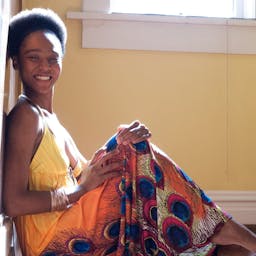Ain’t We Women? – The Implications of Multicultural & Afro-Diasporic Sororities in Modern Feminist Discourse
Jan 21, 2015
Story
The image that comes to mind when we hear the words, “sorority girl” is one of a college girl desperate for friends who was humiliated by other girls she calls her sisters after crossing over into the organization. Our stereotypical sorority girl parties and drinks too much, and is, of course, promiscuous and far from intelligent. This is the idea I went to college with and it was the last thing I wanted to be associated with. Today, I am a proud sister of Mu Sigma Upsilon Sorority, Inc. This is my 8th year as a sister and in reflecting on the lessons I have learned from my sisterhood and maturing into an older women, I wish to offer a preliminary analysis of the impact of multicultural and Afro-Diasporic sororities on modern feminist discourse.
My introduction to sorority life was attending programs hosted by Latina and African American sororities on campus. I was a freshman and had no idea what sororities were about and yet was intrigued. The stereotype I mentioned was immediately shattered and replaced by reality: educated, well-articulated and insightful womyn of color answered my questions and flexed their intellectual muscles at programs their organizations hosted. I began to ask questions of the upperclassmen affiliated with both sororities and fraternities. Later, these inquires led to researching the sororities on my campus on the Internet. I would read their mission statements and check out what they stood for. I was inspired to seriously consider sorority life and was presented with the opportunity to help establish a chapter of a multicultural organization (Mu Sigma Upsilon Sorority, Inc.)
I was attracted initially to the multicultural aspect of Mu. As a Latina, it was strange to feel out of place with the Latina sororities. I did not feel that focusing on just the Latino culture encompassed my identity. I needed the space to be in dialogue about having a multicultural mindset while living the life of an Afro-Latina. My experience as a sister of MSU and being in conversation with my own sisters and also with sisters from Omega Phi Beta, Sigma Iota Alpha and Sigma Gamma Rho made it clear how important our respective stances in regards to culture are. In the bigger picture, multicultural and Afro-Diasporic sororities are abundant platforms from which to bridge cultural gaps and understandings amongst women. This particular feature of both independent sororities and conversation with other organizations echoes what womyn of color have been demanding from Feminist Theory and other arenas in the last couple of decades. The need for multiple voices of womyn cross-culturally to be represented in the sociopolitical arena gave birth to Black & Latina Feminist Theory in the 1960s and 1970s. Before that, African American sororities were established, and the late seventies saw the advent of Latina & multicultural sororities, forged out of the Black Liberation Movement, the activity of the Black Panthers and Young Lords and the wave of immigrants from the Caribbean to the United States. These are the missing voices that we are powerfully taking a stand for.
My experience with sorority and “Greek” life on campus and beyond became instrumental in the leadership I went on to take in my post-college career. The strength, diligence and self-determination of sisters in my sorority and other sororities has always astounded me. It speaks to the inherent authority that womyn possess that our patriarchal system strives to rob us of. As womyn of color, the struggle to assert ourselves is three-fold; in addition to sexism from both white and men of color, we are confronted with racism and subsequently are more than likely to experience economic struggle due to the institutionalization of these ideologies. When womyn of color take positions of power, we change the livelihood of our families, communities and the global community of womyn. Furthermore, to be in a multicultural and Afro-Diasporic sorority and lead by example, on various college executive boards and in our lives is a revolutionary act. By practice, running a chapter teaches womyn how to, essentially, administer and run their own business endeavor. It is a hands-on training for public speaking due to the amount of programming our national governing boards and mission statement require of us. My involvement with Mu has had a huge influence on my career as a writer and lecturer. I honed my ability to take a topic and make it presentable from hours of planning programs with my chapter sisters.
My favorite part of sorority life is the sisterhood. In a world that strives for womyn of color to be at odds with each other, I have enjoyed 8-year sistern bonds with powerful womyn who have made huge contributions to my growth as a person. In her essay, “Scratching the Surface: Some Notes on Barriers to Women and Loving,” Audre Lorde speaks of the forces at play that keep womyn of color apart. Lorde speaks about how womyn of color are often discouraged from building sisterhood, with accusations that women being intimate with each other means they are sexually involved. The lesbian-baiting has obscured the true face of racism/sexism, absolving the society of having to take responsibility for their ideologies. There is the projection of the fear what occurs in safe women spaces – self-definition and empowerment. Simply put, many women buy into this because we have been programmed to seek validation from the attention of men, thus driving us away from each other.
Multicultural and Afro-Diasporic sororities possess the perfect conditions with which to produce and cultivate the growing number of womyn of color in leadership. We are part of the dialogue on visibility in modern feminist discourse, particularly on college campuses. The more awareness we as sisters of strong and capable sisterhoods have about the potential our organizations have socially and politically, the more abundance our involvement with each other will produce.




